“An armed attack on Sweden cannot be ruled out”, claimed Swedish Defence Minister Peter Hultqvist.
It is understood that an extra 27 billion Swedish kronor ($3 billion, 2.6 billion euros) will be added to the country’s defence budget from 2021 to 2025.
The proposed spending rise, which still needs to be approved by parliament, would target all branches of the military and would see the number of personnel grow from 60,000 to 90,000.
According to local media, after the end of the Cold War, Sweden slashed military spending. That was a subject of debate for a long time, and the country’s parliament eventually decided on a turnaround following Russia’s annexation of the Crimean Peninsula in 2014.
Sweden reintroduced mandatory military service in 2017 and in January 2018, the non-Nato member reopened a garrison on the island of Gotland amid concerns about Russian intentions in Europe and the Baltic.
Hultqvist warned though that rebuilding the military would be a drawn out process and lamented that the previous “disarmament went too far,” calling on future leaders not to “repeat the mistakes” and maintain “stability”.



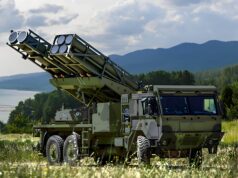

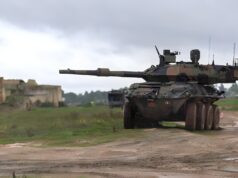
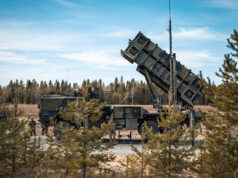
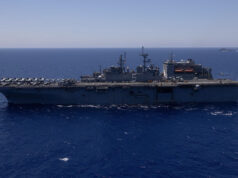
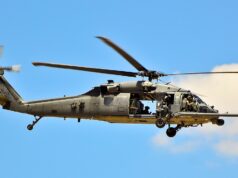
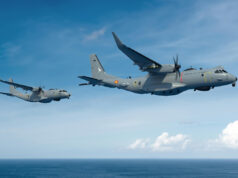
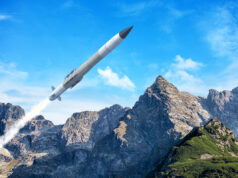

Another Country we need to strengthen ties with as we are increasingly cut off from the major European powers.
That’s the UKs choice.
FYI Sweden is a EU member
Never depend on others, especially the leftist EU for your country’s defense.
Um, would you advocate us withdrawing from NATO then Dan, sending back all those shiny new jets we’ve just bought from America too ???
Ya know, you wouldn’t want to have to rely on any one else when defending your country.
I would guess seeing as the uk was part of the team that developed the f35 it would be ok plus anyone would rather we supply our military with weapons we build another point is when have we ever depended on Europe
OK Tim, I’ll play… I’m sure that 10% of an aircraft will be really handy…..
I was replying to what was a pretty broad post of not depending on others, obviously it then took it a step further and named a particular political outlook and geographical location but I’m pretty sure both us and the French joined forces against the beastly Boche a couple times, Since then, we’ve been allies with said Jarmans, we’ve even worked together on things like the Tornado.
Basically, you can wave your Union Flag (or any other nationality of choice) but in the modern world we tend to form alliances rather than get bullish about our OWN defence. The elephant in this particular room is how far up the American arsehole the MOD is. Remind me, where did the sidewinder missiles come from….. F4 Phantoms, Browning .5’s…. Javelin anti tank… I could go on….
Then there’s those pesky Euro types, remind me where do we get our hand cannons from ? Bofors (while part of BAE now) isn’t exactly a British company, you get the point.
We buy our gear from multinational companies who make it all over the world. You can get precious about stuff being ‘British’ but in reality a lot of it (and the stuff in it) comes from all over the place. Just because its ‘BAE’ (for example) it doesn’t mean its British. So I’m calling bullshit on the post I quoted, even the North Koreans rely on the Chinese.
While I’m on a roll, the Chinese have nicked a lot of their tech, the US are happy to shop around too. Can’t speak for the Russians, those lads maybe make their own but I doubt it so…. basically you’ll struggle to fully build a top notch self defence industry yourself, even the big boys.
I would just like to add that it has been an essential part of British foreign policy to create and work with allies since our we first developed a national identity that included our ruling classes, post the high Middle Ages. Find any significant British war or major foreign policy event that did not include allies in Europe or across the world.
How on earth does anyone think an island with a population of 10million people created the largest empire the world has ever seen, ruling 20% of the worlds land mass…….it was by making a lot of friends ( as well as enemies).
The UK had strong defence links with the European Powers before we joined the EU and will continue to have them after we leave that benighted organisation.
Another blank cheque to Uncle Sam.
Finland is in a similar situation,it recently put in FMS Requests for both FA18 -E/F and F35.
That will be part of the F18c replacement competition in which Typhoon, Gripen and Rafale are also in the running.
True but let’s be realistic. They will choose the F35 to benefit from close ties to US 😉 it’s not like Finland can count on Europe for defense.
“They will choose the F35 to benefit from close ties to US”
In other words Finland already has close ties to the USA, but it has to buy F-35 to benefit from those close ties? You dropped me there…
“…it’s not like Finland can count on Europe for defense.”
What’s your point? Can any unallied country count on any other country for defense? Can Finland count on the USA? Can other European countries count on Finland? Let me guess the real motive for you comment: you oppose the EU, and saw another opportunity to sow mistrust against the union?
I would have thought most of the increased spending will go to domestic defence manufacturers BAE, Saab and whoever builds their naval vessels domestically. I think uncle Sam spends more on its own military capability to defend Europe than it get back from exports.
Not really, for example they are talking about increasing sub numbers by keeping an older boat in service, nothing to do with the US, or the increase in Army numbers for example.
Another country massively increasing defense spending. Surely we will too.
So, if my sums are right, Sweden will up spending from 7.5b to 10.5b USD. This will get them 90000 personnel. UK spends @ 60 b USD and gets @ 135000. Why do we appear to get so little for our defence budget?
World leading SF, with ability to use. That alone is expensive.
PJOB – Permanent Joint Operating bases in several locations around the world.
SSN. How many nations have them?
SSBN.
T45 and T26 capabilities.
Aldermaston, Burghfield, Porton Down.
World leading intelligence / comms systems linking into 5 eyes.
Places like Basil Hill, ( ISS/ GOSCC ) redevelopment came in around 600 million.
Places like Wyton. Unique intelligence hub.
Aircraft Carriers.
Large number of bases, many legacy from WW2.
F35, ISTAR assets, C17s.
50,000 plus MoD civilians, many of whom play vital roles and should not be scoffed at.
A military that actually deploys for operations on a regular basis rather than sitting at home for mostly self defence ( Sweden’s contributions to peacekeeping and such acknowledged )
I could go on and on.
I’m not aware of Sweden having any of those capabilities.
Then….of course.
Incompetence.
Bungling government.
Delays and dither.
Pushing costs to the right increasing long term costs.
A first rank military does not come cheap. Our numbers are appalling because of it. Yes it always seems that we spend an awful lot compared to other nations and lack the numbers.
There is an awful lot more to a military than mere numbers.
By the way, LOVE that colour scheme on the Grippen!
I do realise that Sweden essentially funds local self defence whereas we try to be a mini USA with global reach. But one consequence is that Sweden can field as many combat aircraft as UK and a similar number of fully up to date MBTs and SPGs. The budgetary pressures of UK global ambition have left our army desperately short of such equipment and our warships and aircraft lacking heavyweight anti shipping missiles. By its narrower focus, Sweden has succeeded in maintaining domestic production of key platforms and weapons whereas UK now imports many of these. Sweden shows how much can be achieved with a clear and sustainable plan. We just lurch from one funding crisis to another. France, with a similar budget to UK, may lack some of our support capabilities but builds its own nuclear missiles, combat aircraft, warships and military vehicles and equips them with French made missiles and guns. Maybe it is time to rein in our global ambitions and focus more on self defence. Indeed with the inevitably greater pressure on post civic budgets such an approach may be unavoidable.
Sorry ” post covid”. Damned predictive text.
Peter, with respect, what is self defence? I have this debate with that ill informed troll Harold. I understand where you are coming from, that we may need to reduce our overseas escapades (maybe a few NATO allies can take up some of the slack?) BUT, define self defence? Any military which equips itself as, and operates with a “defensive” posture, for defensive operations only will LOSE EVERY SINGLE TIME.
To be defensive, in that respect, you give the initiative to the enemy, he chooses the time, place, equipment used, etc etc. You give him the ability to operate freely in an air/land/sea and possibly asymetric monouvre ops way, and all we can do is respond to his actions, in a reactive way. To defend successfully you need the full range of offensive platforms, with a matching tactical and strategic concept of ops to match. This will include ISTAR to enable pre-emptive kinetic strikes, on suitable current and future enemy targets and locations. This is a subject that needs a lot more time and space to explain, but in a nutshell, you equip and operate defensively only, you will lose eventually, and always. Cheers
“PJOB – Permanent Joint Operating bases in several locations around the world.
SSN. How many nations have them?
SSBN.
T45 and T26 capabilities.
Aldermaston, Burghfield, Porton Down.
World leading intelligence / comms systems linking into 5 eyes.
Places like Basil Hill, ( ISS/ GOSCC ) redevelopment came in around 600 million.
Places like Wyton. Unique intelligence hub.
Aircraft Carriers.
Large number of bases, many legacy from WW2.
F35, ISTAR assets, C17s.
50,000 plus MoD civilians, many of whom play vital roles and should not be scoffed at.
A military that actually deploys for operations on a regular basis rather than sitting at home for mostly self defence ( Sweden’s contributions to peacekeeping and such acknowledged )
I could go on and on.”
But apart from that, what have the Romans ever done for us ????
Sorry mate, couldn’t resist.
Totally agree, its not just about the ‘bums on seats’, using an extreme example, the North Koreans have one of the biggest armies in the world, I’m not sure they would be of much use other than defending North Korea and even then morale might be an issue.
For better or worse, the UK still has a world wide ‘footprint’ so has a different focus to the likes of North Korea or Sweden so has to react accordingly.
I wish we had the ability to put likes on comments. You’re spot on with this one.
Our forces are hollowed out. I once saw a politician describe a training exercise in Europe where we sent a General and 100 troops and Spain I think it was had sent 1000. He said the UK is a framework nation but couldn’t answer the follow up question of “So we provide the Generals and the other countries provide the troops. Do they not have Generals of their own?”
I know we have SSBNs and very good special forces but we waste so much money on everything in this country it’s not surprising we don’t get as much bang for our pound.
Daniele’s 4 reasons- bungling dither delay stretching programmes out-are all part of the problem. But underlying these is the single root cause: the unwillingness of any UK government to fund the ambition. The salami slicing cuts have tried to make the numbers work but have hollowed out all 3 services. So we may have retained theoretical capabilities, but we have little resilience to sustain them. We may be able to sail a carrier task group around the Pacific, but what could it actually do and for how long in the face of a peer enemy challenge?
Our defence budget will be under intense pressure post pandemic so there will be no more money and perhaps a good deal less. That means a radical rethink of what is necessary and cutting altogether what is either just nice to have or a long standing tradition. I cannot see a viable alternative.
“the unwillingness of any UK government to fund the ambition.”
That is NEVER in doubt Peter, and on that I agree with you 100%
I’d also highlight a point you raised in your earlier reply “we try to be a mini USA with global reach.”
Because we are. And we were. Just over 70 years ago we had one of the greatest empires ever seen. Sweden did not. We have world wide responsibilities, agreements, relationships, culturally, militarily, economically. As Andy P said, a worldwide “footprint”
We are also on the UNSC P5.
When in world history has a country ever “demoted” itself from the world geopolitical game like many are proposing for the UK?
It really is like they’d rather live in a cardboard box than a house.
The UK is somebody. What is needed is HMG to back that with actions, not retrenchment, leaving a vacuum which will be filled by someone else.
Which begs the question? Why would another country “want” to be somebody on the world stage and fill that empty space. Because sure as eggs are eggs someone will. If they have the desire, which is human nature to try to better your station, why cant the UK?
Fully agree Daniele with your posts on this matter. There are many and disappointingly in the mainstream media that poke fun at the UK military. Realistically the UK apart from the US and possibly France have a global sustainable reach, and for China despite the size of its military would have logistical issues deploying around the globe.
Cheers,
George
I certainly take no pleasure in the relative decline of the UK since 1945. But that decline has been inevitable, shared with the other European colonial powers. The era in which British trade in British ships was protected by a global navy with many overseas bases is long gone and will never come back. To echo your cardboard analogy, Britain to me is like the owner of a crumbling mansion he cannot afford to repair but who refuses to downsize even though the children have left home. Britain’s remaining overseas possessions are tiny and unimportant. None contributes to our defence budget, several actively undermine it as tax havens. We are not a former superpower unlike Russia that could rebuild it s status. We are an ex colonial power like France,Spain, Holland, Portugal etc. Our former colonies are not going to ask us to rule them again. By refusing to let go of the past, we will never escape from the downward spiral of our military capabilities.
It is worth adding that unimportant Sweden has designed built and operated 3 supersonic combat aircraft whereas UK has by itself managed one. So I really believe that a narrower and clearer focus on what is necessary and a decision to build it ourselves gives us the best hope for future effectiveness.
And yet France manages to maintain thousands more troops than the UK, develop it own admittedly small strategic forces, build a space industry(based in part on UK rockets). The present UK forces are not for protecting an empire but projecting power and defending sea lanes and allies.
“The present UK forces are not for protecting an empire but projecting power and defending sea lanes and allies”. I agree with your comment, David.
In respect of France, like the UK – it has an uneven defence capability: for instance, lack of heavy-lift, and an unconvincing carrier capability. But as a continental power, you would expect it to have more troops than the UK.
Hi Peter,
You make some interesting points, but I find it difficult to accept that the UK hasn’t downsized its “mansion”. At the end of empire (1970), the defence budget was 6% of GDP – today it is barely 2%.
Rightly or wrongly, the UK believes that its relationship with the United States is the key to its defence – and the defence of Western Europe. Indeed that has been the tenet of our approach since 1940. Today, we still share our continent with a large, heavily-armed nuclear power, hostile to our interests – and one which has conducted a nerve-agent attack on our shores.
Defence funding is configured to buy influence in Washington. Today that means a carrier capability to share responsibility for keeping the sea-lanes free, an F-35B able to join US forces on the first night of strikes against an integrated air-defence network, GCHQ, highly regarded special forces – and a nuclear deterrent. Despite the UK’s relative decline, it seems to have remained a disproportionately influential partner in coalitions and defence diplomacy. Since 1970, I would argue there is a “narrower and clearer focus on what is necessary” – but its certainly not perfect!
I do strongly agree that defence/security includes retaining the industrial capability to go it alone, if needed – and not to hand over shedloads of public money to foreign industry. The ridiculous decision to cancel Nimrod MRA4 in 2010 – and hand over billions to Boeing for the P-8 still springs to mind!
In the context of Sweden, though, and the Draken, Viggen and Gripen – they are hardly in the same class as contemporaries like Tornado, Typhoon and Lightning II. Although the Viggen was certainly a much better aircraft than the pedestrian Jaguar – its rival in export markets – and should have had greater success. But Typhoon pilots have variously described the Gripen to me as – cannon-fodder, a trainer and a Swedish F-16!
I’m a fan of European multi-national aerospace projects, we get more bang for our bucks than going it alone – but I’m concerned that France seems to have split Germany from our successful Panavia and Eurofighter industrial partnership. That doesn’t augur well for Tempest.
To continue with my analogy: we have kept the mansion( global reach) but no longer have the kids contribution to the costs of upkeep. As you note, we have cut from 6 to2% of GDP but still want to be a global player. I would love us to spend more but that isn’t going to happen. So to make sure we have proper kit and numbers for the really necessary capabilities, we perhaps have to be less global. That wouldn’t mean giving up Cyprus or Gibraltar but might mean staying away from the Pacific or Indian ocean.
I absolutely share your concern about our declining ability to build our own equipment. Not only does this weaken our resilience in times of crisis but it means we will have little to offer export markets in future. Retaining domestic production is what France in particular has done so much better.
Agreed the Pacific is an ocean too far. A jaunt round the globe though is a hard habit to break and lots of friends like to see us from time to time.
Hi Alan, I’d like to thank you and Peter S. for providing a bit of food for thought, some interesting points and approaches from both of you.
Nimrod MRA4 airframes were Un-airworthy!
No need to debate this issue again.
So what are you going to do with a 68,000,000 people living on a very crowded country? Surely this population is largely a legacy of all that nasty Empire business? The children haven’t left home and so in my estimation you have to keep busy and outward looking or we are scuppered. Besides, there are places where if they get into trouble we have a moral incentive to help out.
That’s who we are. We aren’t the Swedes, the Swiss or the Irish etc. who stand on the sidelines saying ‘ Oh bother, beastly stuff, little me, none of my business’.
Our large population really comes from being first to industrialise. That population was supplied with cheap food from our colonies to the detriment of UK farming. Trade in UK manufactures and foreign food was protected by the Royal Navy. This dependence was the biggest threat to us in both world wars. But today there is much less of a link between economy and defence. The world buys German cars etc but Germany,for obvious reasons,rarely intervenes abroad. I do not see any greater need for Britain to get involved in overseas problems outside our treaty commitments. We do not have the mass to intervene decisively and our recent forays have frankly been failures- Iraq,Afghanistan, Libya. So forget we had an empire 70 years ago, focus efforts on what we need now and in future and ensure that is delivered, ideally from British sources.I actually think this is quite achievable.
Britain can only produce up to 60% of it’s own food. We are venerable.
We also got a Blue Water navy as well, which Sweden has not got!
I wonder if some of the extra funding will go into Team Tempest? Even a few million dollars of government monet would send a message that Sweden is serious about sticking with it.
Sweden is not part of Tempest, it is only doing a joint study for future tech it wants to use to modernize the Gripen. (i suggest you take a look at the RIAT 2019 press conference, the point was made very clearly)
This extra spend is partly to help Saab stay afloat because it is in financial difficulty, and Sweden considers Saab as a major pillar to its strategic national defense.
The latest update from Sweden on Team Tempest is described in the attached link:
https://www.janes.com/defence-news/news-detail/sweden-firms-up-fcas-partnership-with-uk-but-no-commitment-to-tempest
At the moment there isn’t a agreement on Sweden being a part of Team Tempest, but to “develop a close working relationship” with the partners. whatever that means?
Historically Sweden has always favoured the lightweight multirole fighter. I don’t see this changing. The basing and operating methods are centred around their road networks and the ability of their aircraft to use them. Hence since the days of the Viggen and now Grippen the aircraft required a very good short take off and landing capability.
The UK requires a direct replacement for Typhoon. Therefore it must have long range, high thrust to weight ratio for a fast time to intercept and a large weapons payload. This requirement precludes a single engined fighter.
On the face of it, there are two disparaging requirements between each Nation. However, the airframe requirements may be different, but avionic and weapon wise there can be a lot of similarity. Much like the current Grippen E/F uses Leonardo’s Raven radar, Typhoon is getting the Captor-E (or whatever it’s called today). Both radar are based on the same core, use a mechanical swash plate to increase the view angle, and use the same transmitter-receiver modules (TRMs) in the array. The main differences are due to the Typhoon being bigger, so can house a larger array of TRMs and doubles up the number of processors. Therefore, I can see a lot of the needs for the future aircraft to share the same avionics, but scaled to fit a larger and smaller aircraft tailored to their Nation’s needs.
We may see two different designs, but built using the same materials to minimise the aircraft’s RCS. Perhaps using an engine based around the same core, but with a larger diameter compressor section for a single engined aircraft.
Hi DaveyB, that’s a good point – when the talk turns to Tempest, the swish computer renderings and the model that Williamson unvieled a few years back instantly spring to mind. But will Tempest, if it hopefully does come to fruition and survives the umpteenth defence spending reviews that will undobtedly happen between now and 2035, actually resemble that model or images? Or will Tempest be more like the FOAS? Less about the specific airframe, and more about the technology and advanced capability?
Having said that, I wouldn’t be necessarily adverse to a two strand approach as you describe, having a twin engine aircraft for air superiority and long range interdiction and a single engine lightweight fighter for Swedish requirements, which could also suit a number of central and eastern European NATO members’ circumstances, too.
In the past, there has been a lot of debate over the relative merits of the euro canard fighters, mostly because for the last 30 years they have more often than not been fighting each other for defence sales than the waves of MiGs they were designed to mix with at the height of the Cold War. But really I think the types are complimentary, and would work together very well either within a single nation’s air force or a multinational force (as proved in the skies over Libya in 2011, thinking about it).
I think a mixed fleet of Typhoon/Rafale and Gripen would offer great flexibility to any nation, the twin engine delta giving excellent air superiority and long range interdiction, and Gripen in the Jaguar/Harrier role, forward deployed from dispersed bases, providing CAS, reconnaissance and local air defence to ground forces in a high intensity conflict, and a cheap, reliable and easily deployable expeditionary capability for low to medium intensity operations further afield, akin to how France used the Jaguar in its post-colonial interventions.
Sadly, given the squeeze on defence budgets in the west in the last 30 years, all of that has been a luxury that just about everyone has decided they can do without and most air forces have adopted small numbers of a single type just to maintain the fast jet skillset.
But who knows, eh? Maybe that could change as Russia and China continue to rebuild…or maybe the Tempest tech will change how we all work. Maybe Tempest+Loyal Wingman could replace the Typhoon and Gripen as a combined force?
A smaller number of Tempest twin engine manned aircraft would operate further back at traditional air bases in the familiar role of regional air defence and long range strike, while a large number of Loyal wingman UAVs are forward deployed from dispersed FOBs, with the option for them to be either locally controlled for CAS/local air intercept/recce missions over frontline forces, or alternatively launched to join with a Tempest strike package, with control being passed to the pilot/controller in the twinjet for the duration of the mission.
Whatever comes of it, I hope we do continue with Tempest and it doesn’t get shelved. I actually like the fact that it is not a hard and fast multinational agreement like Tornado and Typhoon for that matter. As long as we accept that we will build it, and we will build it to our needs and budget, then I’m happy for us to work with the Swedes and Italians on a looser transactional collaboration at the industrial level, as opposed to the politically bound manufacturing relationships we have had in the past.
Germany could take a lesson from Sweden and not always depend on others for their own defense.
Germany is part of NATO, Sweden isn’t.
And? Doesn’t change the fact that German soldiers were once training with broomsticks as guns, and that they large number of helicopters and jets in no condition to be operated.
Every country in the world is doing like. We’d have to be insane to do the reverse
What EU countries are realising the only way that you can support jobs is through defence spending EU rules mean its the only sector you don’t need to open up to foreign competition. Germany is doing the same.
Except the French who as usual are practiced subsidisers and rule breakers and yet some how get away with just about everything. I sometimes think they must have two sets of books!